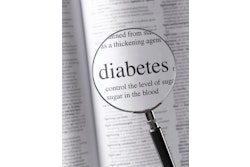Patients who received periodontal management for two years before the onset of type 2 diabetes had better health than those who didn't receive care. The study was published on November 18 in the Journal of Oral and Maxillofacial Surgery, Medicine, and Pathology.
In addition to improved health, those with controlled periodontitis may experience lower medical costs, the authors wrote.
"Regular periodontal disease prevention and management under professional care before type 2 diabetes mellitus onset contribute to improved health and reduced medical costs,” wrote the authors, led by Yukiko Sakamoto of the Osaka Dental University in Japan.
This study used data from the Japan Medical Data Center claims database, which includes health records for approximately 17 million people as of April 2024. A total of 4,010 patients age 30 and older diagnosed with both periodontal disease and type 2 diabetes between 2014 and 2018 were included in the study.
They were further divided into two groups: one receiving at least four years of periodontal care (two years before and two years after the onset of diabetes) and another receiving only two years of care post-onset. In addition to medical costs, the study assessed diabetes onset and tracked data one and two years afterward, focusing on glycated hemoglobin (HbA1c) levels, they wrote.
At diabetes onset, HbA1c levels were 7.17 ± 1.28% for men and 7.27 ± 1.38% for women without prior periodontal care compared to 7.29 ± 1.67% and 7.45 ± 1.91% for those with care. Two years later, HbA1c levels dropped to 6.80 ± 1.18% (men) and 6.71 ± 1.20% (women) in the periodontal care group compared to 7.05 ± 1.08% (men) and 7.04 ± 1.20% (women) in the noncare group (p < 0.05), they wrote.
Furthermore, medical costs at diabetes onset were 359,572 Japanese yen ($2,337) for men and 345,220 Japanese yen ($2,243) for women for those without periodontal care versus 446,520 Japanese yen ($2,902) for men and 399,534 Japanese yen ($2,596) for women for those with care. Two years later, costs were significantly lower for those with prior care despite their higher numbers (p < 0.05).
However, the study had limitations. The database lacked x-ray and intraoral examination data that prevented analysis of the underlying pathophysiology of periodontal disease, they wrote.
"These findings suggest that regular periodontal disease prevention and professional management before the onset of diabetes mellitus are important factors contributing to improved health and reduced Journal Pre-proof medical costs," Sakamoto et al wrote.




















